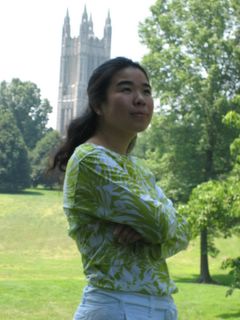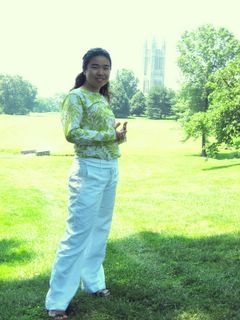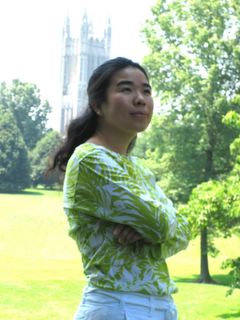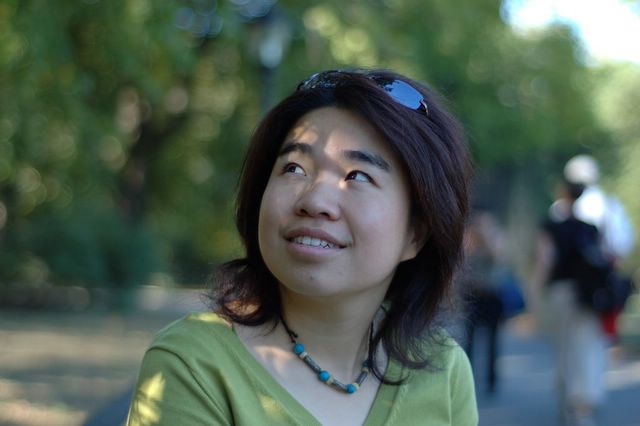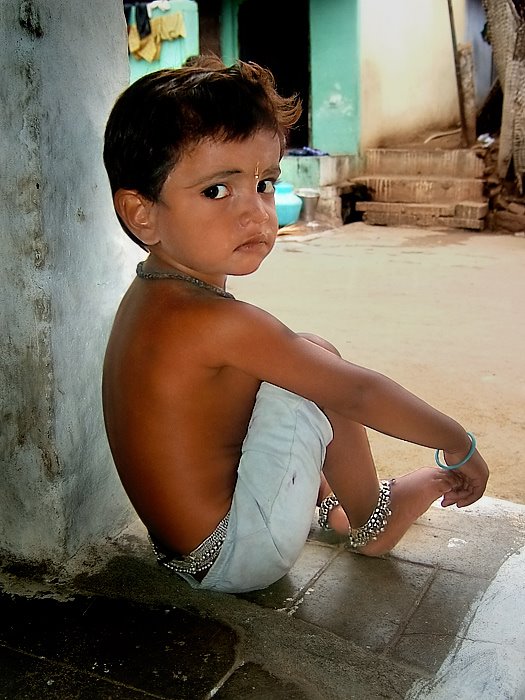2006年6月23日星期五
蔡康永的残酷故事
2006年6月22日星期四
from Cai Kangyong 《有一天啊,宝宝……》
夏至
2006年6月20日星期二
韩寒歌词《偶像》
安静舒缓不见 人类动荡妖艳欠揍的出现 开始放电 他怎么不触电
偶像露出嘴脸 英雄开始下贱 所谓的尊严 不值一钱 你竟以此共勉
上帝派出和平鸽 却被人类做汤喝 别啦 投胎快乐
没有偶像的年代 万物一年被淘汰 人们礼尚往来 内心却很坏 啦啦这是最好的年代 充斥最烂的情怀 孩子难免受害 再给下一代我最怀念某年 空气自由新鲜远山和炊烟 狗和田野 我沉睡一夏天
突然满眼的工业 麻木代替热血永别 把我消灭
我最心底的姑娘 她已模糊不成样 请安息在脑海 让年岁掩埋 啦啦没有信仰的年代 我们等着被变卖 我们只会发呆 发成了痴呆 啦啦这是最好的年代 充斥最假的情爱 噪音变成天籁 金钱换来爱 拉拉这是最好的年代 这是完美的年代 拉拉拉拉拉拉 最后变成了 时代 拉拉……
Airport
Airport is an amazing place. Here all the life stories converge to a single arrival or a departure. Tears, laughs, and dreams come true. People bring all emotions with them, hopes, nostalgia, memory, hatred, resentment, and love. In this dramatic setting, one encounters her past, present and future. I waited my mom’s flight and felt like my mom waited for me at the gate of the kindergarten. Some people run into tears when they see their beloved faces, some yield at the top of their voices, and some wave their hands like crazy. Suddenly people of different colors speak a common language, the language of love and reassurance. As usual, the Air China flight is late. Most of the passengers had come out before I finally saw my mom. She looked great in her dark green shirt and she even managed to get herself a cart to move her luggage. I waved to her and she smiled right away, as she smiled at the kindergarten gate. Many years passed by and we felt the inner connection of us reverberate again. We took a supershuttle and it was around the rush hour of the day. But she looked cheerful and the 13 hours flight was not even make her tired.
The summer heat started this week and the locals were so jammed. I remembered my mom used to take me on her bicycle back seat when I was young and rode for an hour to go back home. The chilly wind of Beijing and mom’s warm back made such a contrast, and sometimes I was fallen into asleep on our way home. Now the sunshine of late June afternoon makes Queens and Manhattan like hotspots, and now it is me who tour my mom of my city in another time zone. Mom laughed and said, the time was almost the same as Beijing except we were 12 hours apart. We have been lived 12 hours apart for 5 years and this is the very first time we share the same time zone. It was great! As the shuttle run across Queens Boro Bridge, I showed her the streets and places in middle town. People finished their work and started to walk home, and the street was full of tourists. Mom was surprised by the doges in town, and she found the dogs were huge here in States. We traveled on 57th Street from east heading west, across the Park Ave, Madison Ave, Fifth Ave, the lower side of Central Park and up to Amsterdam Ave. On our way, I showed her the Carnegie Hall, the Lincoln Center, the Central Park, the St. Johnes the Divine Church, and my university. Although it took almost two hours to come back home, but we had a nice and quick tour of the middle-upper part of the town.
Jin and Leifan were very nice and invited my mom and me to dinner. I managed to make two cold dishes and we had a great dinner together. Mom brought the latest news from China, and I found Jin know so much about the current status of our country and I was almost out of touch of reality. My world is much narrowly focused, around my dissertation and my reading. Mom brings me back to everyday life and makes me feel at home. My small room has never been so crowded, but it looks like a home and even smiles like a home. I have to change many things, such as switch my computer to Chinese setting, change SINA instead of GOOGLE as my homepage. I guess this is about happiness, heavy but real.
2006年6月19日星期一
Identity , a review
Love Letter
The Atlantic Sea along New Jersey shore is beautiful. The color of the waves changes constantly depending on the sunlight and the color of your sunglasses. Because of the cloud, the temperature is not very high and the beach is quiet and relaxed. In mid of June, the water is still cold but refreshing. The long waves desperately wish to come back to the seashore. They push forward and pull back again, dancing in a repeated way. The sound of the waves is incredibly loud, like a naughty boy roaring all the way.
The beach gives one endless space to reflect one's life. The super power of nature makes it possible to open one's mind. I walked for two miles on the wet beach, tried to reconcile my feeling and my thought. The book I am reading bothers me a lot, Kundera's Identity. What is a love letter? Kundera makes a joke of love letter by imitating Cyrano de Bergerac, letting Jean-Marc sent love letter to his lover Chantel under a fake name. The more he sent those letters the more he observed how she changed and rejuvenated. The love letters, speaking the unspoken desire of a stranger, convey a sense of intimacy and admiration which is long lost in their relationship. In those letters, you have no practical purpose but communicating your most secret passion. The freedom one gains in those letters usually goes beyond their daily language and reaches the divine stage of spirituality. The murmuring of the spiritual trees in the back of our mind echo our love language and makes it so strong that the desire its self becomes a dwarf. The love letters are not about the person you love, but about the figure you wish to love or love to love. The writing creates an idle, a pure being without any touch of the mundane world, a bluebird in everyone’s dream. Like Cyrano, sometimes we can not speak our love, so we write for others. But the love is true, as virtuous as anyone else. Deeply inside us, there is a longing for companionship, for sharing and afraid of death alone. Those letters remind us of our youth, the days before our falling. Remembering the swallowtail butterflies in Shunji Iwai’s movie? The unsatisfied love and lust in Yen Town? I envision one’s life as two stages, the innocent youth and the hopeless adulthood. We fall from our divine being as we grow up, in an irreversible way. Everyone of us is the leading figure of this tragedy, we are the producers, directors and actors. Only when we write the love letters, we regain our power of imagination, of boundless freedom to express ourselves, of worship the paradise lost.
